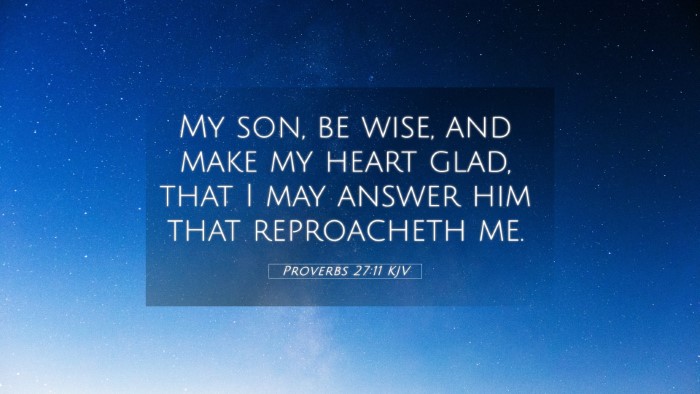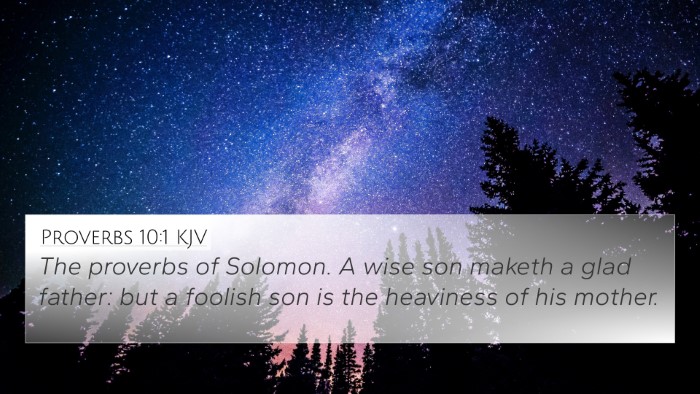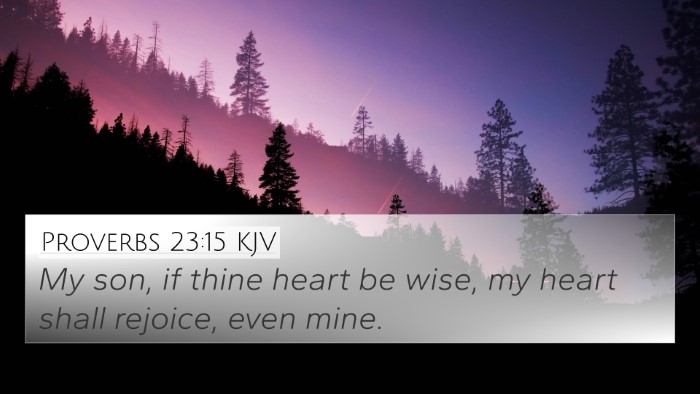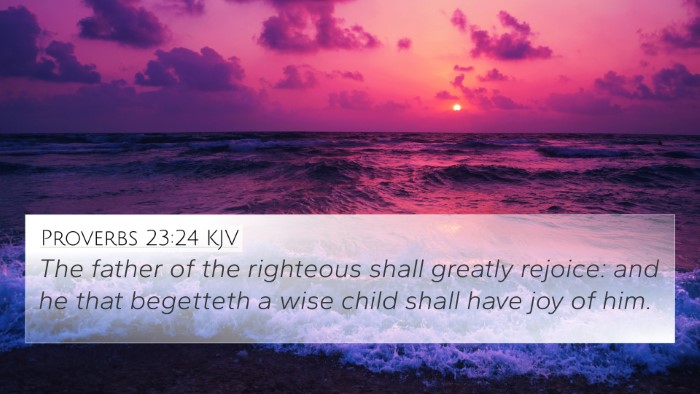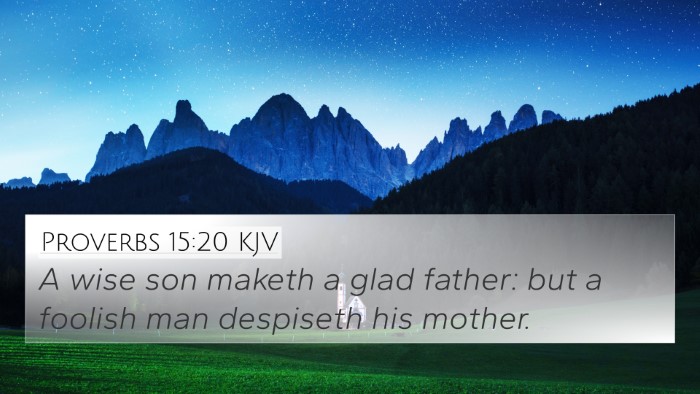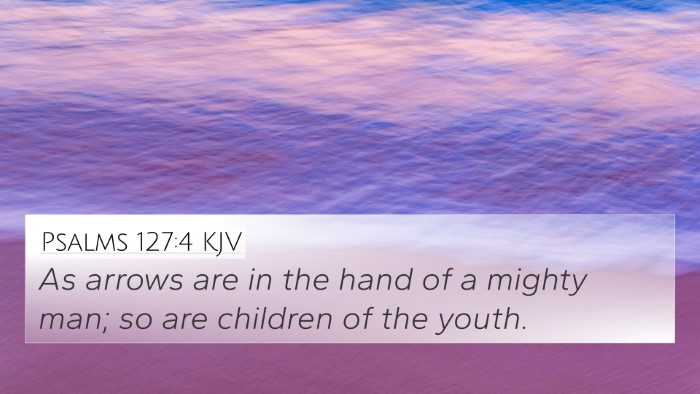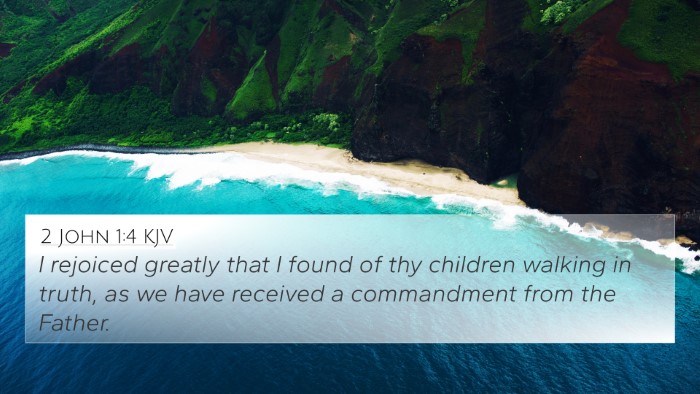Understanding Proverbs 27:11
Verse: "Be wise, my son, and make my heart glad, that I may answer him who reproaches me." (Proverbs 27:11)
Summary of Insights
This verse calls for wisdom and its implications for relationships, particularly between a father and son. It emphasizes the value of wise counsel, the joy it brings, and the defense that wisdom provides against reproach or criticism.
Matthew Henry's Commentary
Matthew Henry elaborates on the importance of imparting wisdom and its role in bringing security and happiness to those who receive it. He emphasizes how a wise son not only brings joy to his father but also shields him from shame as it enhances the family's reputation.
Albert Barnes' Analysis
Albert Barnes points out the responsivity of the wise individual in a relationship, focusing particularly on a son’s duty to act wisely. This wisdom has a dual benefit: it uplifts the father emotionally and creates a protective barrier against potential shame brought by external criticisms.
Adam Clarke's Commentary
Adam Clarke notes that the verse not only implies a personal duty but also reflects a communal responsibility in wise behaviors. The relationship nurtured through wisdom leads to mutual respect and strengthens social bonds, making the wisdom of the son essential for the father’s well-being.
Importance of Wisdom
Wisdom in the Biblical sense is often about making choices that reflect understanding and prudence. In the context of this verse, it suggests the need for an individual to act thoughtfully so that their actions please others, avoiding conflict and reproach.
Related Biblical Cross-References
- Proverbs 4:7: "Wisdom is the principal thing; therefore get wisdom: and with all thy getting get understanding."
- Proverbs 10:1: "A wise son maketh a glad father: but a foolish son is the heaviness of his mother."
- Proverbs 15:5: "A fool despiseth his father's instruction: but he that regardeth reproof is prudent."
- Proverbs 22:6: "Train up a child in the way he should go: and when he is old, he will not depart from it."
- James 1:5: "If any of you lack wisdom, let him ask of God, that giveth to all men liberally, and upbraideth not; and it shall be given him."
- Ecclesiastes 7:12: "For wisdom is a defense, and money is a defense: but the excellency of knowledge is, that wisdom giveth life to them that have it."
- Proverbs 19:20: "Hear counsel, and receive instruction, that thou mayest be wise in thy latter end."
- Proverbs 4:11: "I have taught thee in the way of wisdom; I have led thee in right paths."
- Proverbs 12:1: "Whoso loveth instruction loveth knowledge: but he that hateth reproof is brutish."
- Proverbs 29:15: "The rod and reproof give wisdom: but a child left to himself bringeth his mother to shame."
Thematic Connections
The overarching theme surrounding Proverbs 27:11 is that of wisdom as a source of joy and strength in relationships. It suggests that a wise approach to life not only secures one's own standing but also uplifts others.
This verse encourages a comparative analysis of parental and filial relationships throughout scripture, highlighting the succession of wisdom and the impact it has across generations.
Furthermore, it prompts scriptural cross-referencing with other Biblical teachings on wisdom, reinforcing its importance in navigating life's challenges.
Conclusion
In conclusion, Proverbs 27:11 encapsulates the essence of wise living and its emotional benefits within familial relationships. It offers valuable insights into the mutuality of relationships, encouraging one to embrace wisdom not just for personal gain but for the joy and defense it brings to those around them.

